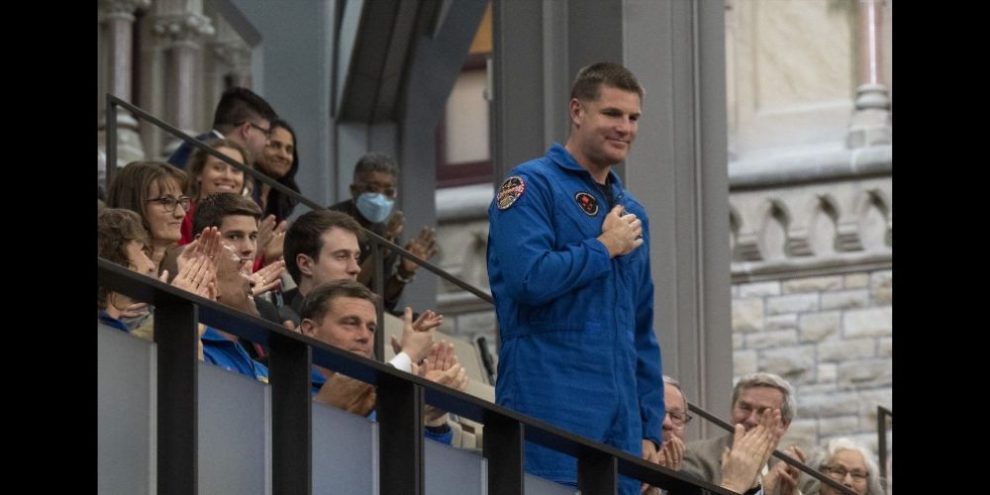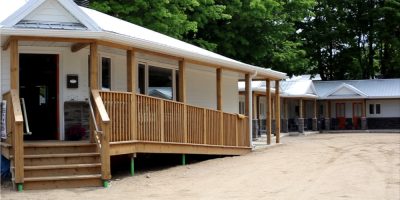
By Nairah Ahmed
As Jeremy Hansen prepares for his mission around the moon, the Ontario-born astronaut is thinking about the ways Canada could help tackle some of the world's most pressing problems.
The 47-year-old colonel and CF-18 pilot is to become the first Canadian to travel to the moon as part of the Artemis II mission, which could launch as early as November next year.
The 10-day mission involves slingshotting into deep space for a figure-8 manoeuvre around the far side of the moon. It would mark the first time any human has ventured so far from Earth.
For Hansen, being a part of the mission underscores the value Canada can bring to international partnerships, especially as the planet grapples with the urgent issues of climate change and food insecurity, among others.
"If we can send a Canadian to the moon, imagine what we can do next," Hansen told The Canadian Press in an interview.
Hansen, who will embark on NASA's Artemis II mission alongside three Americans, said it's "pretty extraordinary" that Canada has the expertise to contribute to such a partnership.
"It's a nod to thousands of Canadians who worked really hard with a common vision of bringing benefit to Canadians over decades,” He said. "There's a deep sense of being humbled by that invitation to represent Canada on this mission."
The last time an astronaut entered the moon's orbit was in 1972, for the final Apollo mission. Since then the International Space Station has been the only destination for humans in space.
"No one's done this in over 50 years and nobody has flown on this vehicle that is going to take us back to the moon,” said Hansen, the only astronaut on the Artemis II mission who hasn't already been to space.
Over the next year and a half, Hansen said the Artemis II crew will be working with engineers and system experts to create different simulators, test possible failures and find solutions.
"To prepare for the mission, probably the most important aspect is actually testing all of the systems, all of our procedures or protocols before we go,” he said.
Once in the moon's orbit, Hansen said he will be "far enough away to see the entire marble of Earth hanging in space," and expects to have "an extraordinary perspective as a human being."
"I will be in a spacecraft where I don't have that security of survival," Hansen said. "I'll be reliant on just a few systems that have to work in order for me to survive to get back. And I think that'll be very humbling and a great reminder of the beautiful gift we have – Mother Earth."
Hansen said he expects to feel some of what he experienced during a vision quest in an Anishinaabe community in Manitoba, when he went without food or water for four days.
"Day-to-day we take for granted when we have water. But in that experience I really appreciated it," Hansen said.
The astronaut who was raised on a farm in the greater London, Ont., area said his interest in space began as a child, when images of people walking on the moon got him thinking about travelling beyond Earth. He also watched a lot of "Star Wars" and "Star Trek" while in school.
To his younger self, and to any child, Hansen said he wanted to send a message that doing one's best was all that was needed.
"You can accomplish extraordinary things by simply knowing what you want, sharing with other people and just putting in a best effort," he said. "But don't be so hard on yourself."
Now a father with three children, Hansen said he was concerned about the future of the planet and was looking to potential solutions being explored at the International Space Station.
"There are seven human beings in space right now from around the world. And even countries that we're having trouble with on the ground, in space, we're collaborating because you have to," he said.
"We've shown that we can do extraordinary things when we do collaborate."
International partnerships can help create solutions for problems like food production in remote communities, health-care delivery and climate change, Hansen said, and those could be applied to space exploration in the future.
"Canada has a lot of expertise and genius in the country to offer in these areas and it's a really good synergy for us because the exact same problem on the planet, we will have on Mars and on the moon,” Hansen said.
"Space is a pillar, one pillar of the future solutions needed for us to survive here as a species. And I see Canada's opportunities as immense in that area."
This report by The Canadian Press was first published June 30, 2023.
Banner image via The Canadian Press





